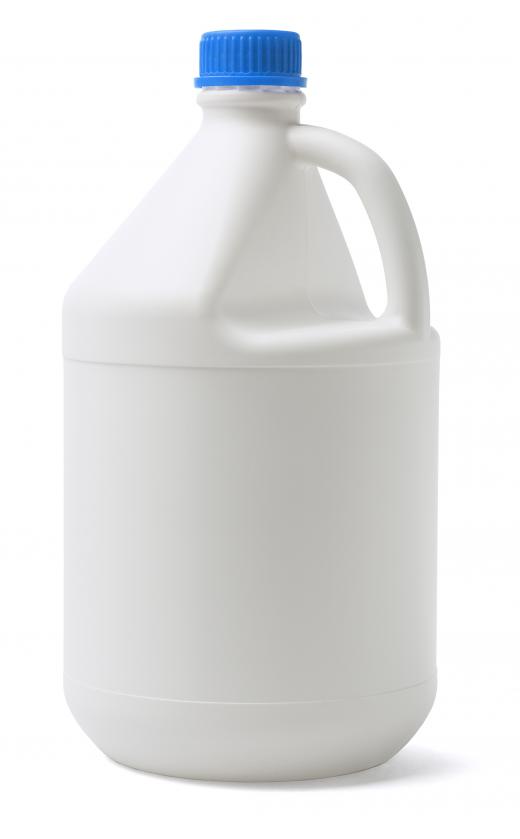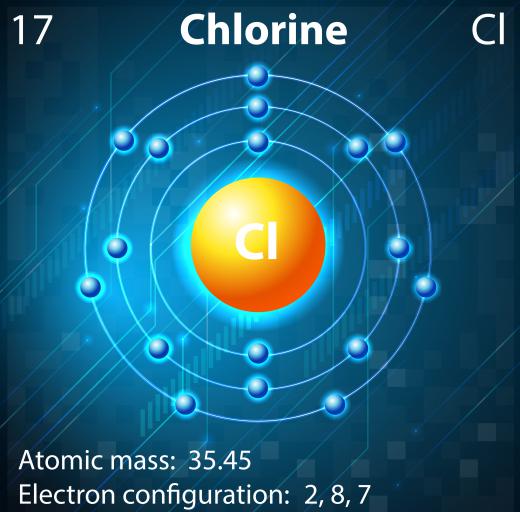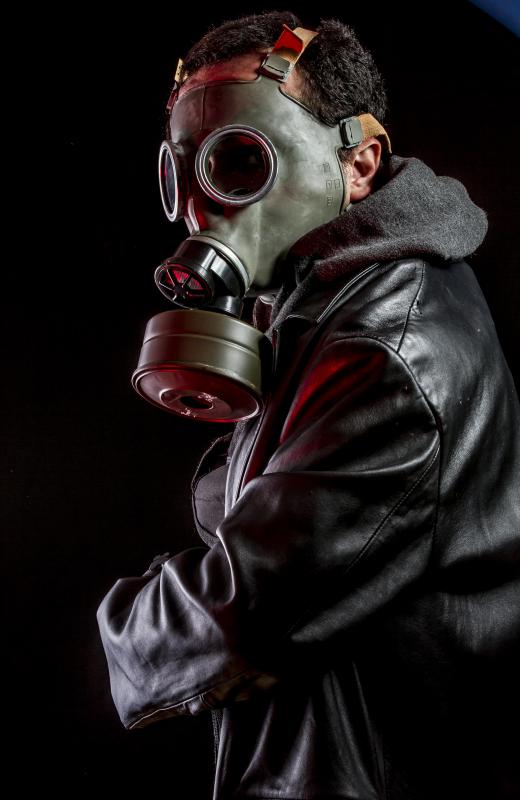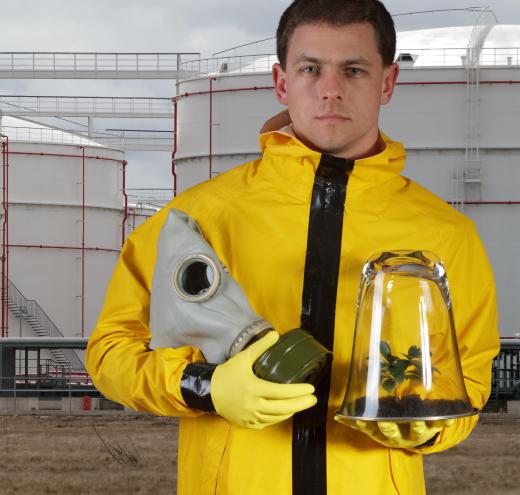What is Chlorine Gas?
Chlorine gas is a form of elemental chlorine that is commonly used industrially. It is also a highly toxic gas. This compound was the first poison gas to be used during World War I.
At atmospheric pressure and room temperature, elemental chlorine is a gas. It is yellowish-green and has the characteristic smell of bleach. Chlorine gas has a greater density than air, so it tends to settle near the ground. When cooled and pressurized, the compound becomes a liquid, which facilitates its transportation and storage. If released, it turns back into a gas that spreads rapidly near the ground.

One of the reasons that this gas is so toxic is that it is highly reactive with water in the mucous membranes of the lungs and eyes. This leads to the production of hydrochloric acid and hypochlorous acid, which together act as an eye and lung irritant, corroding tissue. If one is exposed to chlorine gas, one should seek immediate medical attention. There is no antidote for exposure to this gas, so rapid treatment is paramount.

Aside from industrial exposure to chlorine, one very common method of chlorine exposure is the mixture of household bleach with other cleaning agents containing acids or ammonia. This can produce toxic gas and leads to many poison control center visits. In addition to chlorine gas, ammonia gas and chloramines can also be produced. Household bleach by itself is not toxic to humans.

The deliberate use of chlorine gas in war was introduced in France in 1915 by the German Army, and was devastating since the troops did not have gas masks. Its use was supplanted later in the war by poison gases that had different modes of action. More recently, chlorine bombs have been used in the Iraq War.
Elemental chlorine has the chemical formula of Cl2 and is a member of the halogen group of elements. The weak bond between the two atoms makes the molecule very reactive. It is a strong oxidizing agent and causes oxidation by accepting electrons from a compound. It can cause combustion with organic compounds, such as ammonia, turpentine, and natural gas.

This reactivity leads to its usage as one of the most common industrial chemicals manufactured in the United States, and worldwide. It is used as an intermediate in the synthesis of many chemicals, including polyvinylchloride (PVC), pesticides, and household cleaning products. It is also used in the bleaching of paper and textiles. Chlorine compounds are commonly used to disinfect drinking water, swimming pools, and in sewage treatment plants.

Another frequently used chlorine compound that is used in liquid and gas form is chlorine dioxide, ClO2. As a gas, it is highly unstable at room temperature, and prone to explosion, so it is not allowed to be transported in the United States and many other countries. For this reason, it is generated onsite, when needed, by the chemical reaction of sodium chlorite.

Chlorine dioxide gas is used as a disinfectant for laboratory and manufacturing equipment, clean rooms, and tools. Disinfection takes place in a sealed area. After several hours, the gas is treated with sodium bisulfite to neutralize it. One use of chlorine dioxide has been to treat the aftermath of terrorist attacks. After a series of anthrax attacks in the United States, this gas was used to disinfect the government office buildings and mail that were contaminated with the anthrax biological agent.
The gas of chlorine dioxide is also dangerous for humans, acting as a severe eye and pulmonary irritant. Chronic exposure can cause emphysema and bronchitis. In addition, the decomposition of chlorine dioxide can release chlorine gas.

Like chlorine, chlorine dioxide is used to disinfect drinking water. It is used as a step before chlorine disinfection to eliminate trihalomethanes — the possible carcinogenic by-products of chlorine that are produced by its reaction with organic matter. The most common use of chlorine dioxide is for bleaching pulp fibers produced from wood.
AS FEATURED ON:
AS FEATURED ON:

















Discussion Comments
Post your comments